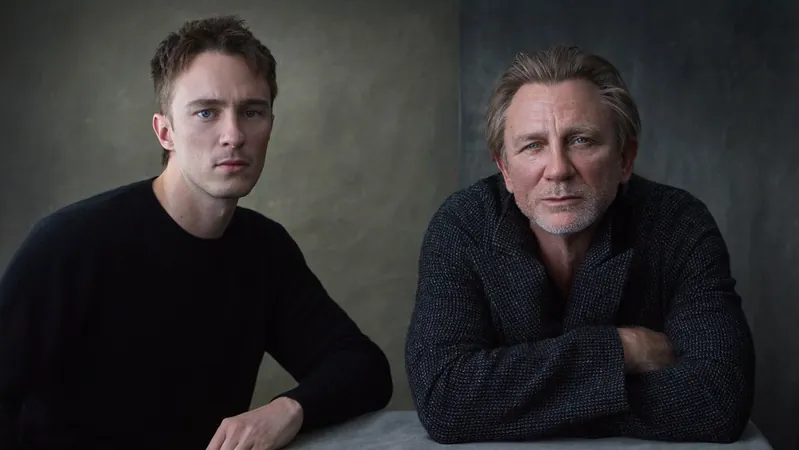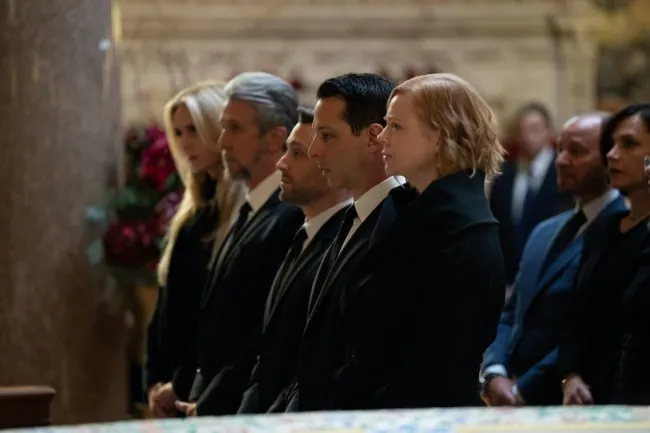
Inside ‘Queer’: Daniel Craig and Drew Starkey Reveal the Raw Realities of a Groundbreaking Love Story
2024-11-04
Author: Kai
Luca Guadagnino's latest film, "Queer," pushes storytelling boundaries by diving deep into the lives of two gay men navigating their complex emotions and desires against the backdrop of 1950s Mexico City. With its provocative and intimate visuals, the film opens with a series of intricate still-life images—glasses, trinkets, and books—each reflective of its protagonists’ struggles and aspirations. In an interview, stars Daniel Craig and Drew Starkey praised Guadagnino's cinematic skill, highlighting how material possessions convey deeper character insights.
Their playful banter hints at the film's irreverent nature, as Craig jokingly muses whether certain explicit details survived the editing process. According to both actors, the film is rife with audacious themes, nuanced storytelling, and raw authenticity.
"Queer" is adapted from William S. Burroughs' 1985 novella, which draws from the author’s own tumultuous journey involving addiction and a passionate relationship with a discharged serviceman. In this adaptation, Craig portrays William Lee, a man entangled in a whirlwind of substance abuse and societal rejection, who forms a connection with the enigmatic Eugene Allerton, played by Starkey. As their relationship evolves, so do their struggles—much of which lies in their individual battles with vulnerability and acceptance.
What sets "Queer" apart from earlier gay cinema is its unapologetic depiction of sexuality and the complexities tied to it. The film's candid sex scenes, a rarity in mainstream cinema today, reflect real-life encounters of desire, intimacy, and the chaos that often surrounds them. Singer Omar Apollo, who plays one of Craig's love interests, notes the profound familiarity of such experiences for gay audiences, adding layers of emotional depth to the narrative.
The film’s running time was initially a staggering three and a half hours, and while it has since been trimmed to a more manageable 135 minutes, the rich tapestry of themes, from love to addiction, remains intact. The film has been compared to classics like "Brokeback Mountain" for its honest approach to gay relationships and the human experience overall.
Acting alongside seasoned star Craig, Starkey views this project as a significant milestone in his career, allowing him to step beyond the teenage roles that defined his previous work, such as his portrayal of Rafe Cameron in Netflix's "Outer Banks." Together, they craft a connection that transcends mere physical attraction, demonstrating the depth of human emotion amidst the backdrop of social judgment.
Their chemistry was palpable on set, enhanced by a fast-paced shooting schedule that allowed them to explore their characters deeply. Notably, Starkey underwent a physical transformation for his role, adjusting his fitness regimen to accurately portray Eugene’s fluidity and charisma.
Guadagnino is known for fostering an inclusive and collaborative atmosphere on set, which helped the actors embrace their characters authentically. Starkey reflected on the process of rehearsing intimate scenes, indicating the importance of communication and trust in creating a safe environment.
The film premiered at the New York Film Festival, followed by a lavish after-party where Guadagnino celebrated his cast's hard work and triumph. The festival circuit has generated buzz for Starkey, now recognized as a rising star. His charismatic presence at events coupled with the film's thought-provoking content has led to a viral sensation around his performance.
As audiences prepare for "Queer" to hit theaters on November 27, it’s evident that the film is not just a narrative about love, but also a poignant exploration of the human condition—a reflection on how society's judgements shape personal identity. Craig and Starkey's performances promise to deliver a captivating experience that challenges and enlightens viewers, with love and honesty at its core.
In a cinematic landscape where conversations about queer representation are increasingly vital, "Queer" stands as a bold declaration of love, vulnerability, and authentic storytelling. As Starkey presumptively put it, audiences can expect a film that goes beyond surface-level themes—it invites you to witness a love deeply rooted in human experience, a narrative resonating far beyond its time.


 Brasil (PT)
Brasil (PT)
 Canada (EN)
Canada (EN)
 Chile (ES)
Chile (ES)
 España (ES)
España (ES)
 France (FR)
France (FR)
 Hong Kong (EN)
Hong Kong (EN)
 Italia (IT)
Italia (IT)
 日本 (JA)
日本 (JA)
 Magyarország (HU)
Magyarország (HU)
 Norge (NO)
Norge (NO)
 Polska (PL)
Polska (PL)
 Schweiz (DE)
Schweiz (DE)
 Singapore (EN)
Singapore (EN)
 Sverige (SV)
Sverige (SV)
 Suomi (FI)
Suomi (FI)
 Türkiye (TR)
Türkiye (TR)